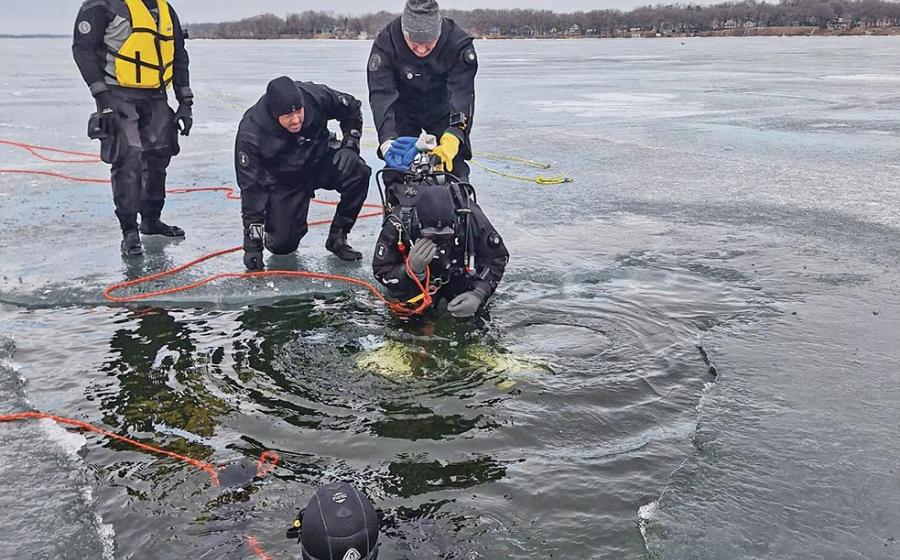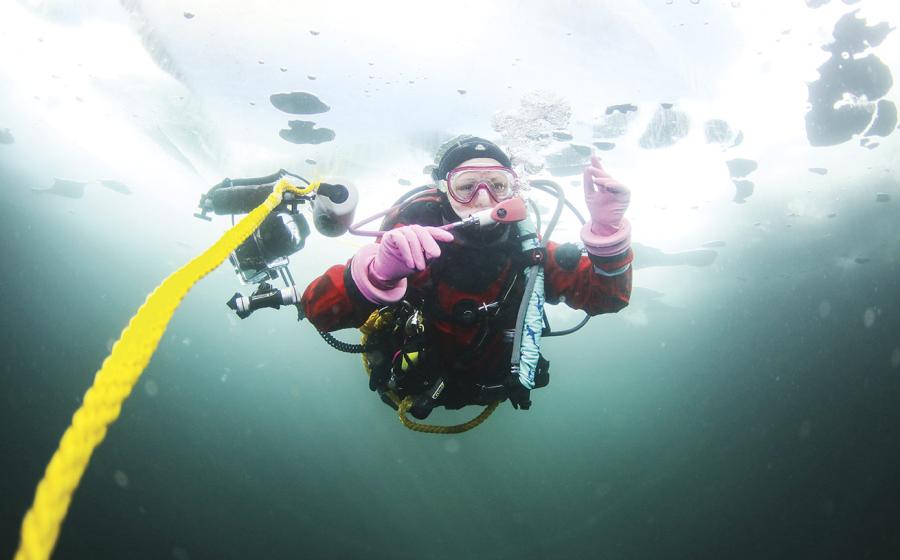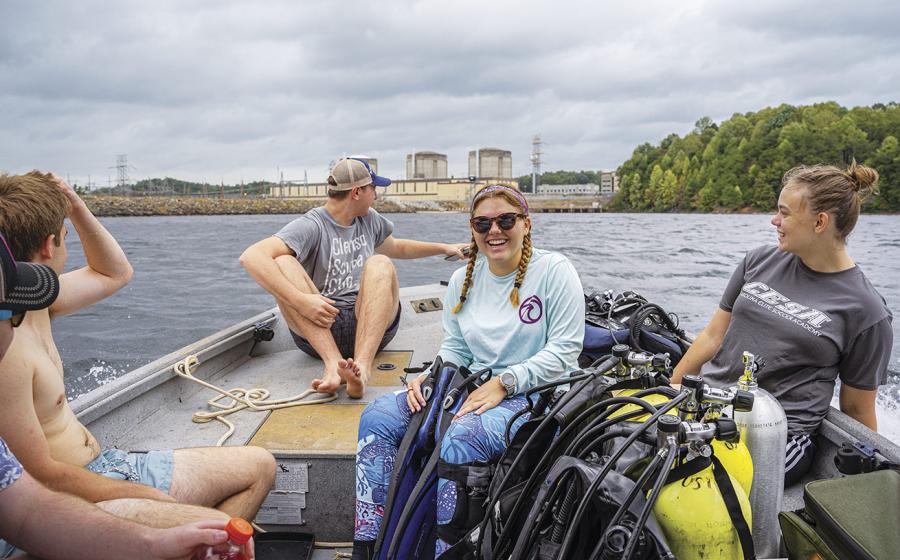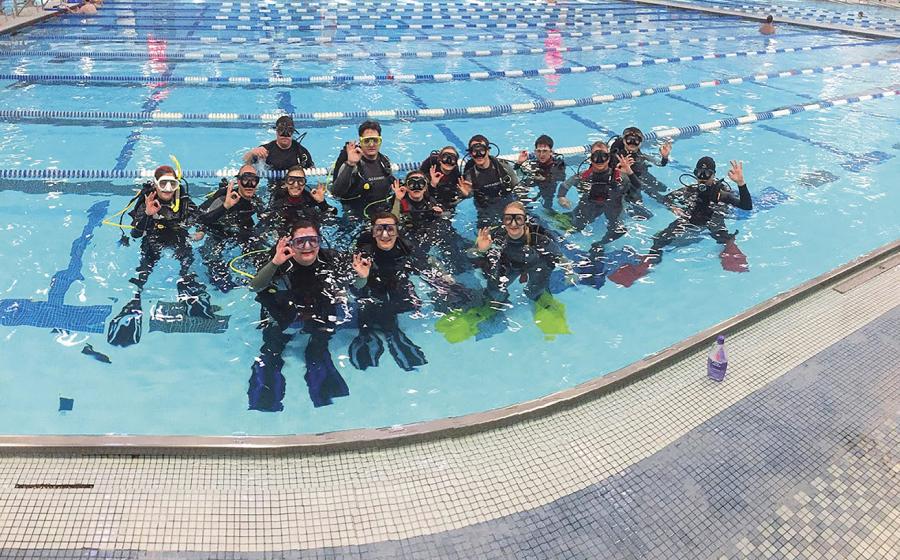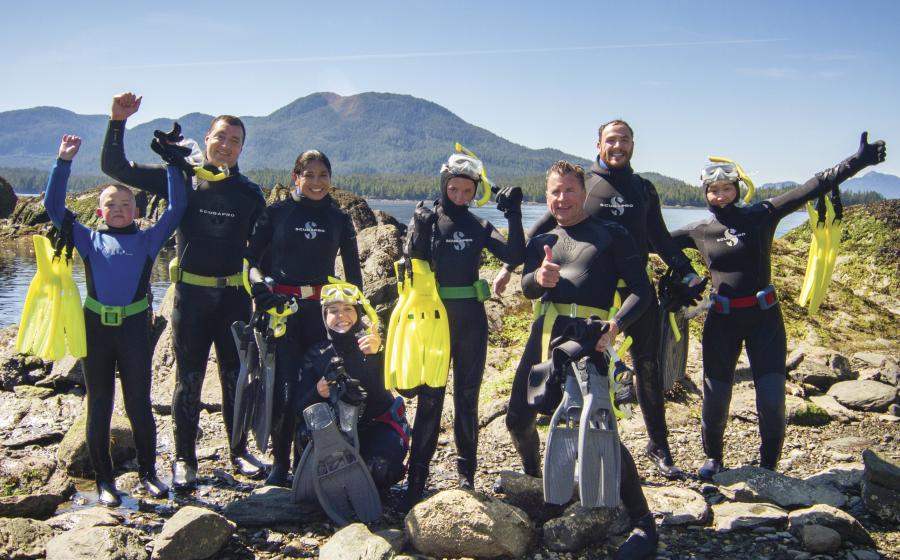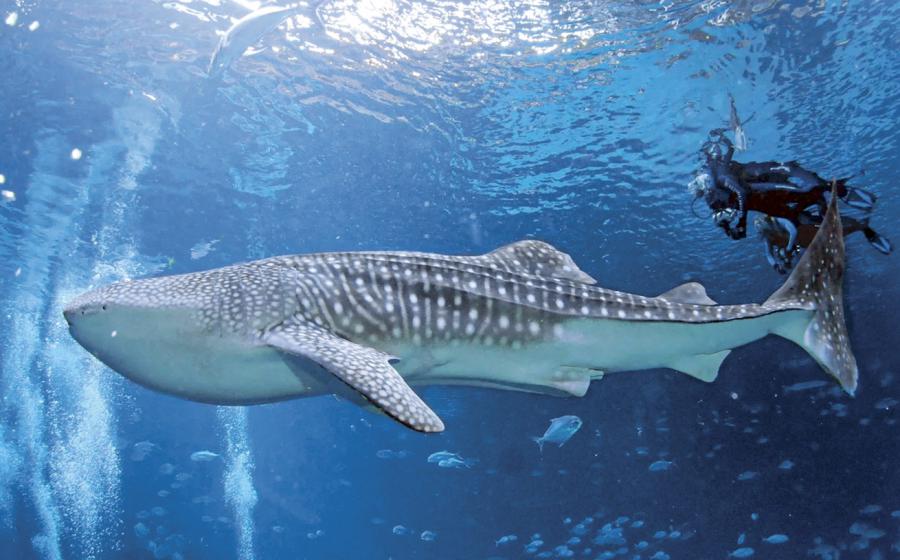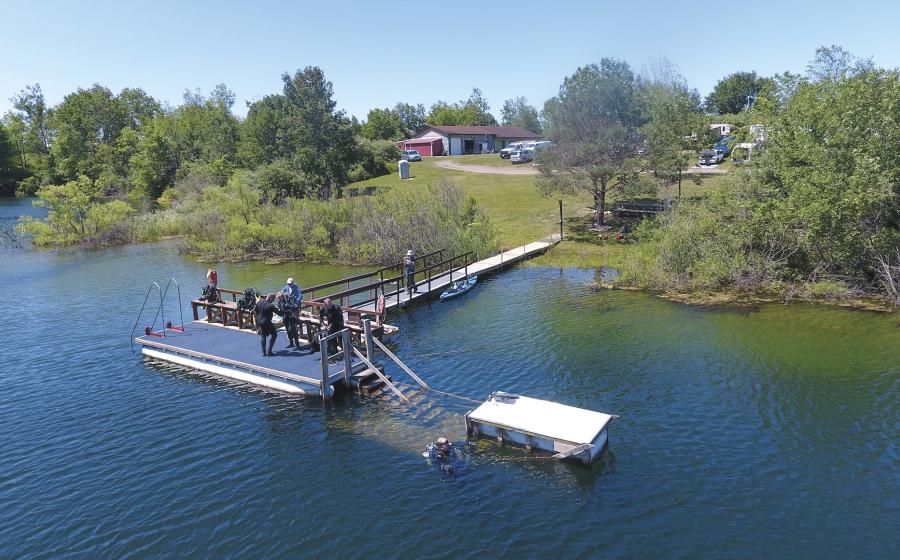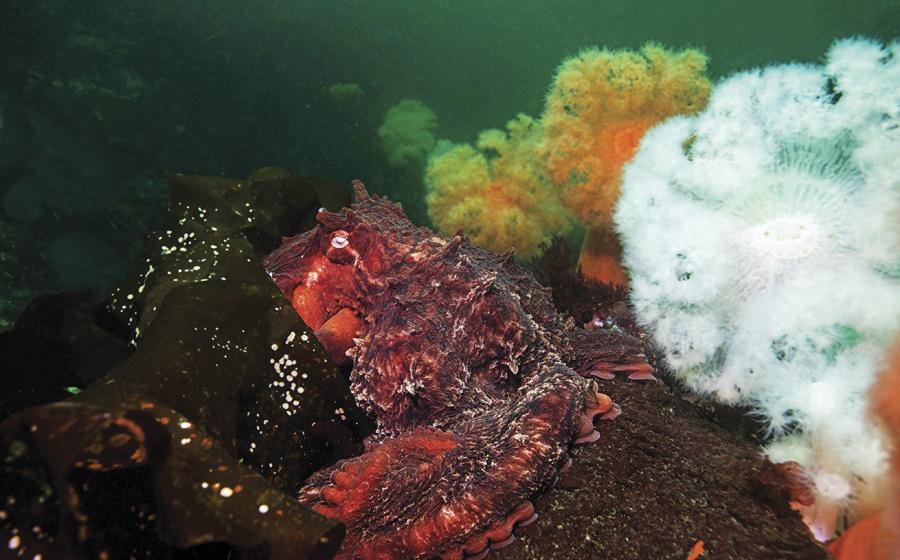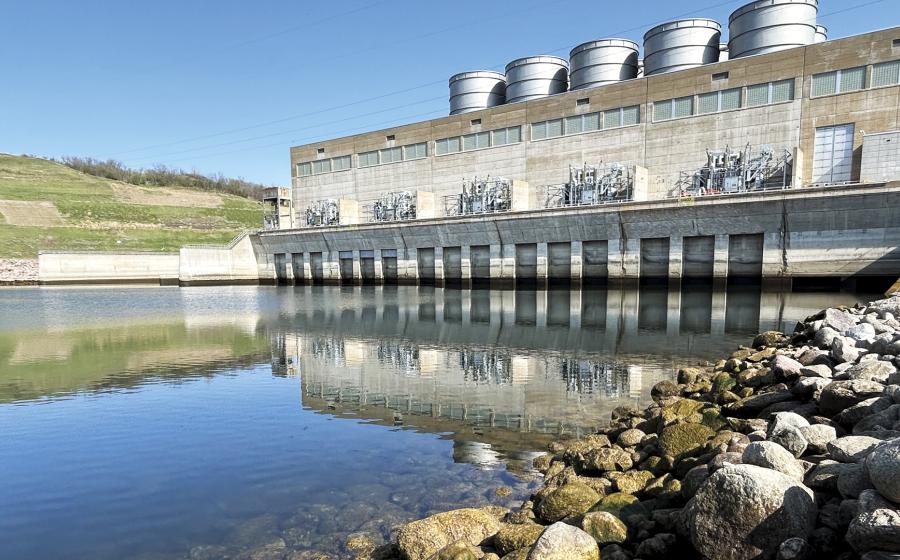Katie Doyle is a writer and media artist who has been scuba diving since 2020. She is a fan of cold-water diving in the Northeast, where she resides.
Katie Doyle Articles
Once a year, divers of all skill levels gather for a weekend of frigid diving in one of Iowa's frozen-over lakes.
When the temperatures dip, but the urge to dive hits, residents in South Carolina head to Lake Keowee, where an on-site energy plant warms the water to temperatures up to 80 degrees.
Winter diving isn't for everyone. Colorado Scuba Diving Academy invites divers to hone their skills off-season from a decidedly warmer place—the pool.
The water may be frigid, but brave the temperatures, and you're rewarded with a smorgasbord of brightly colored critters that dazzle.
Fear of diving in the open ocean is common. A confined dive, like the one at the Georgia Aquarium, can help apprehensive divers overcome their fears and build a connection with the ocean and its residents.
Dive with us in Western Pennsylvania, where we found a quarry with a secret you wouldn't expect. (Spoiler alert: It's a seasonal jellyfish bloom that never fails to dazzle.)
Don’t let the cold temperatures scare you away from diving this abundant underwater fjord in Washington. Designated as a marine preserve, this destination is the perfect place to see wolf eels, giant Pacific octopuses, lingcod and more.
The murky Mississippi River water surrounding Garrison Dam is full of treasure, making it a popular attraction for archaeologists, professional or otherwise.


